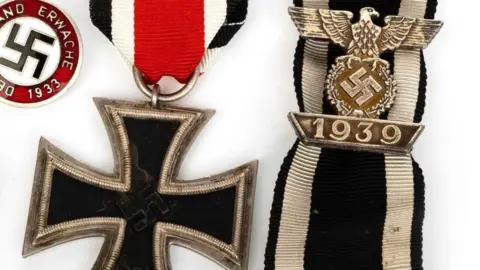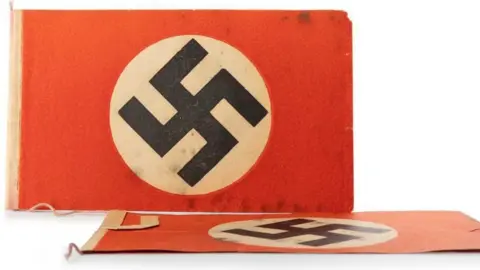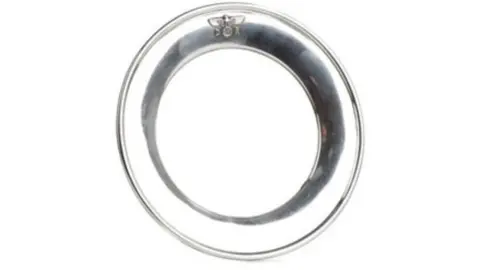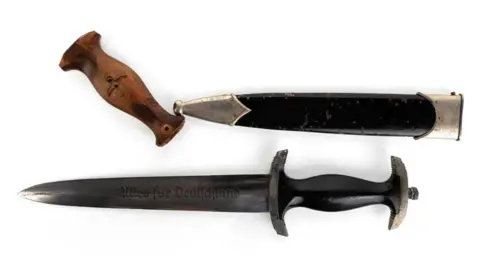Auctioneer to stop selling Nazi artefacts
 McTear's
McTear'sA Scottish auction house that sold Nazi artefacts has announced it will no longer include Third Reich memorabilia in its collections.
McTear's auctioned swastika bunting, a military medal, an SS dagger and other fascist artefacts at sale in Glasgow.
The auctioneers initially defended the inclusion of the items, insisting they had been "handled with sensitivity".
However, McTear's later announced it would cease the sale of Nazi and SS memorabilia.
 McTear's
McTear'sListed as "Scotland's only auction dedicated to military history", the auction was introduced on the McTear's website as a "piper's delight" because it included historic bagpipes, as well as artefacts from "Anglo-English" history.
Of the 62 items on sale, 11 were listed as "Third Reich" artefacts.
The Nazi items fetched more than £1,600 in total.
They included a Luftwaffe dress dagger, which sold for £220, and an "SS-type" dress dagger, which did not sell.
An Iron Cross military medal, which came with a swastika pin badge, sold for £300, while Swastika bunting was bought for £50.
The collection also included four silver plates, emblazoned with the Nazi eagle, said to have been taken from Herman Göring's personal train dining carriage.
Two of the plates were auctioned for £500 each.
 McTear's
McTear's McTear's
McTear'sGöring, the Luftwaffe chief and high-ranking Nazi, killed himself in 1946 the day before he was due to be hanged for war crimes and crimes against humanity.
A £1 Nazi "propaganda note", a Hitler Youth book and a "bandit-warfare" badge were also included in the collection.
The note and book sold for a combined £65, while the badge was not purchased.
Second World War Japanese naval binoculars were also auctioned for £1,300, while a war-era Japanese sword went for £360.
A Japanese flag, which McTear's said was possibly a "Kamikaze flag", went for £60.
'Extremely dark era in history'
A McTear's spokesperson initially defended the auction, saying the items provided "a tangible link to an important - albeit extremely dark - era in our history that should never be forgotten".
The auction house later added: "That said, we fully understand the sensitivity surrounding the sale of these particular historical items and have now taken the decision to cease the inclusion of Nazi and SS artefacts in future auctions."
The firm said it did not receive any income in fees from the sale of the Nazi memorabilia.
McTear's, based in Glasgow, was founded in 1842 and describes itself as Scotland's "favourite auction house".
It is not illegal to sell Nazi memorabilia in the UK, but such auctions have been heavily criticised.
In 2019, a Belfast auction house has cancelled the planned sale of Nazi memorabilia after a Jewish community leader described the planned sale as "sick".
Professor Thomas Weber, chair in history and international affairs at the University of Aberdeen, said while auctions of Nazi memorabilia posed "difficult" ethical questions, they should be allowed to go ahead.
He told BBC Reporting Scotland that in a "perfect world" people would donate the artefacts, but that the "second best" option was for them to be sold at auction.
The Nazi history expert said: "The alternative is that people either just throw this material out when they find it because they are too embarrassed, or they sell them through dark channels."
He said that without auctions, scholars would be unable to bring together major historical collections which are used to research extremists and for Holocaust remembrance.
